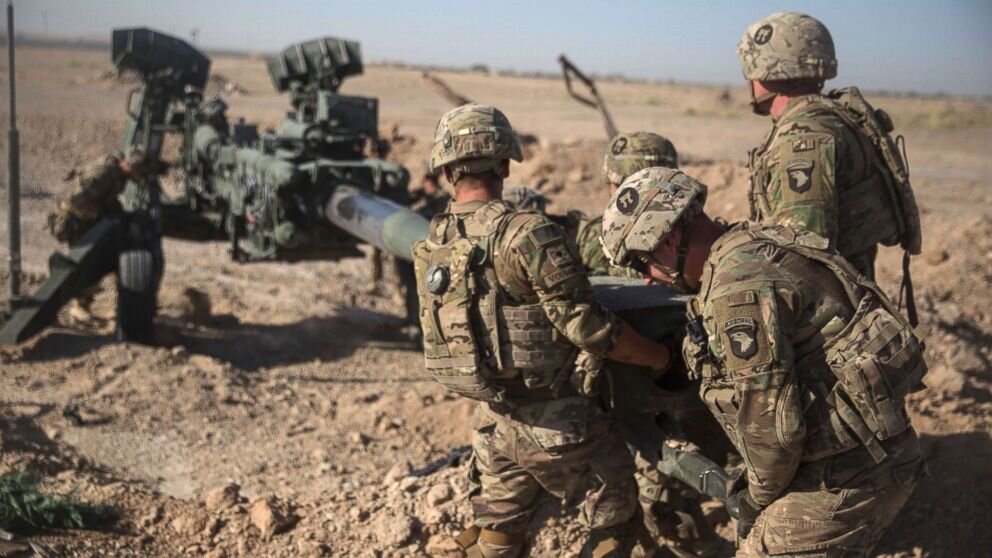9/11 attacks and U.S. ‘selective’ war on terrorism

TEHRAN – The September 11, 2001 attacks on the U.S. marked a turning point in the U.S. foreign policy toward West Asia, where the U.S. waged several wars to allegedly fight terrorism. However, analysts tell the Tehran Times the U.S. did little to combat terrorism and its wars on terror have been selective at best.
The U.S. launched a massive military campaign to fight terrorism immediately after four airplanes crashed into civilian and military buildings in the U.S. on September 11, 2001. In a clear warning to certain countries in the region, then-President George W. Bush announced that the U.S. would not make no distinction between the 9/11 terrorists and countries harboring them.
“We will make no distinction between the terrorists who committed these acts and those who harbor them,” Bush said in a televised address on September 11 at 9 pm.
Afghanistan was among the first countries that were accused of harboring terrorists by the U.S, which created an international coalition and invaded Afghanistan a few weeks after the September 11 attacks. However, Afghanistan was not the only country to be turned into a battlefield against terrorism. Yemen, Pakistan, Somalia, Iraq, Libya, and Syria were also turned into battlefields, which inflicted high costs on their people.
The post-9/11 wars on terrorism displaced as many as 59 million people, according to a new report released on Tuesday by Brown University.
“The U.S.-post-9/11 wars have forcibly displaced at least 37 million people in and from Afghanistan, Iraq, Pakistan, Yemen, Somalia, the Philippines, Libya, and Syria. This exceeds those displaced by every war since 1900, except World War II,” the report said, adding, “37 million is a very conservative estimate. The total displaced by the U.S. post-9/11 wars could be closer to 48-59 million.”
This is all while analysts say that the U.S. didn’t fight terrorism or have fought on a selective basis.
“The U.S. is a state sponsor of terrorism and its wars on terrorism have only exacerbated the situation. Prior to the 2003 Iraq war, terrorism didn’t exist in the forms we see now. Terrorism and extremist groups have emerged after the U.S. invaded Iraq and Afghanistan,” Ja’afar Ghannadbashi, a West Asia expert, told the Tehran Times.
Amirali Abolfath, a U.S. expert, said the U.S. adopted a “selective” policy in its war against terrorism: fighting terrorism in some places and supporting it in others.
Responding to a question on whether the U.S. really fought terrorism in the post-9/11 wars, Abolfath said, “It is not a black-and-white issue. We can’t say that the Americans were successful or not successful in the fight against terrorism. The United States has succeeded in some places and failed in some others. They have fought terrorism in some places. For example, they succeeded in preventing further 9/11-styled attacks and in defeating Daesh in some places, which is a breakthrough. However, this doesn’t mean that the U.S. has implemented all its declared policies. I think the Americans fought terrorism on a selective basis which means that they fought terrorist groups such as al-Qaeda in some places and supported these groups in other places.”
“In the early months of the emergence of Daesh, the U.S. didn’t move to stop it. The U.S. had no problem with the Daesh terrorists as long as they were against the people of Iraq and Syria. However, when Daesh turned against the U.S. and captured and beheaded American journalists, the U.S. began to fight against it. The U.S. followed the same policy toward al-Qaeda. There is evidence that al-Qaeda was established by the CIA, and Osama bin Laden had a close relationship with the CIA,” Abolfath told the Tehran Times.
According to Abolfath, the U.S. succeeded in the fight against terrorism in some places and failed in the war on terror in other places, and also it supported terrorism in some places or at least turned a blind eye on terrorist activities.
